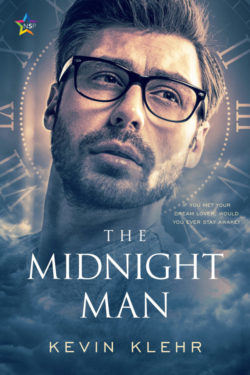Antarctica, Snow and Ice
by
You can never judge an academic book by its cover. Simon Dyson, a quiet assistant professor, is a man of hidden depths. To the world he presents as a harmless, innocuous, shy and retiring intellectual. However, the man who lurks behind that public persona is far more interesting … and dangerous … and driven.
'Wheelchair' is a slow-burn contemporary psychological crime thriller about a man who suffers from both OCD and PTSD, a man who is unwittingly caught up in a cross-border war between rival crime gangs—a conflict that almost leads to his death, and more than once.
It's a study of compulsion and of disability, and of the many faces of emotional dependence and sexual compulsion. It’s about how some men cannot just love or make love because their hearts or their bodies lead them to it, but who can only connect emotionally and physically through self-imposed rituals which involve struggle or self-abasement.
Publisher: Moshpit Publications
Editors:
Cover Artists:
Genres:
Pairings: M-M
Heat Level: 2
Romantic Content: 1
Ending: Click here to reveal
Character Identities: Gay
Protagonist 1 Age: 26-35
Protagonist 2 Age: 26-35
Tropes: First Time, Friends to Lovers, In Uniform, Menage, Sex Buddies Become Lovers
Word Count: 128000
Setting: Sydney, Australia
I'd read somewhere people say a near-death experience is inevitably life-changing—somehow existential. Existential—and I don't mean to be patronising—means affirming or implying that something is …
No need for an object on the end of that hanging sentence; philosophy is all about conjecture—each man or woman will supply his or her own noun or phrase. In my case, the thing that was to be affirmed or implied was my existence. As I was a non-believer, I'd always imagined death would be just like turning off a light switch. One moment all movement and light, and then the next zilch.
READ MOREI didn't know if I was dying or not; my present reality was under review. I was having an out-of-body experience, one in which my body and my mind were fighting over who had the greatest right to be heard. My body seemed to be screaming at me in terror, trying to tell me how badly injured I was—not like one of my "normal" past-life injuries, something more substantial. My mind, however, blocked out my body's messages, drawing pictures for me. It drew my body naked, splayed out over a large, bloodied canvas, looking for all the world as if it had been ripped apart, and then the pieces put back together by someone who'd never seen the pattern for a human being. I felt sad. All my fragile body parts were mismatched, joined together by drawing pins driven through nerve endings.
I quickly ran through dates in my head: 1810, founding of the University of Berlin; 1815, Jane Austen publishes Emma; 1824, first performance of Beethoven's Ninth; 1836 … okay, my mind was working—I told it to shut up, and then I began to reach out for my physical being. I felt no pain, but knew I was in agony and my body was broken.
"Mr. Dyson? Can you hear me, Mr. Dyson? My name is Sandor. I'm a paramedic with the ambulance service … Simon? Can you hear me, Simon?"
The voice dimmed. I'd decided that I didn't want to know how hurt I was. I'd closed my inner eyes—the ones behind my eyelids—and then blocked my ears, slowly disconnecting myself from the unease of the reality in which I'd floated for a few seconds.
If I was going to die, then so be it. But, as I had no control over whether I'd either wake up at some later stage to find myself in a sea of disquiet or to have simply disappeared into some great void, sleep and/or unconsciousness seemed the most viable option. "Farewell, you brown and pleasant land …" I started to say in my mind, laughing at the absurdity of a paraphrased memory of better prose.
"Simon, if you can hear me, squeeze my hand …"
The voice floated at the edge of my awareness. I hoped I'd smiled before I let go. In one way or another, I knew what was coming next was the start of a journey—one with two possible destinations.
The first, into oblivion—I'd know nothing about what the arrival platform would look like because I'd be dead.
The second made me afraid that when I did get off the train then I'd wish for the first.
COLLAPSEManny’s kids are a diverse and unique group. Rescued from the streets by philanthropist Harold Mankiewicz and given safe places to live while having their education funded and places for them to work and succeed in life, the group have all followed different walks in life, work hard, strive to help others, and have stayed a close knit group. Perhaps the most distinctive individual to emerge from Manny’s philanthropy is thirty-nine-year-old Simon Dyson. Suffering from “compulsive behaviour,” OCD, and PTSD with a “need for punishment” due to his early childhood with his father and what he had to do on the streets to survive, Simon is an “associate professor of history,” “a man with a heart as big as the State of Queensland, but with enough armour around it to circumnavigate the globe twice over,” “the fear of being touched, the fear of intimacy,” and “one of the most complex human beings on the face of the planet.” His greatest solace is to occupy his mind making “scale models for serious model railway enthusiasts.”
At the explosive start of Garrick Jones’s latest novel, WHEELCHAIR—ANTARCTICA: SNOW AND ICE (2020), the car Simon is driving is violently rear-ended, flipping the car over. Severely injured, Simon is cut loose from his seat belt by twenty-six-year-old Constable Obadiah Sexton only to have the vehicle which causes the accident turn around and run over the Constable as well as a woman who stops to render aid. Only with incredible, adrenaline-fueled, “hysterical strength,” is Simon able to drag the officer to the side of the road before the car catches on fire, saving his life. Clearly no random accident, events have been put into place which bring together a number of Simon’s mates to not only aid their friend, but to try to get to the root of the mystery for the attack.
WHEELCHAIR is a cunningly crafted piece of fiction. It is the author’s first thriller with a modern as opposed to historical setting. The novel contains an intriguing narrative technique in which Jones has Simon narrate the chapters which are devoted to or mainly coming from his perspective. Other chapters have a third person narrator. This form of narration causes no confusion and only benefits the reader and the story and is seamlessly done.
As with his other works, Jones displays obvious pride in his homeland of Australia, sprinkling the text with references to Australian culture and language. Also adding texture to the book are quotations from books and movies which are likely to delight fans of the works. Just as there are moments of darkness which match well the complexity of the characters and the novel’s events, there are also some germane scenes of rather explicit sex, realistic dialogue and smidgins of sometimes racy humor.
Early in the novel Simon admits it takes time before he can open up with people he doesn’t know and so it is with WHEELCHAIR. Events slowly peel back new revelations, especially since Simon can remember very little of the accident and his rescue of Obadiah Sexton (quickly dubbed Obi in the story). Simon’s friends, crucially aware of his long-time fragile psychological condition which can lead to breakdowns and his need to physically heal from debilitating injuries, are cautious to prod Simon’s awareness of events so they all can move forward to confront what is happening and seemingly closing in upon them. Simon is equally eager and yet hesitant to face what has taken place and what might be coming about as his life is turned upside down. Even the book’s title remains a bit of a mystery for readers to discover.
Finding the truth becomes all the more essential when it becomes known there was a parcel in the trunk of the car Simon was driving which someone is willing to kill to find and Simon’s life clearly continues to remain in danger.
Supplementing the mystery plot of WHEELCHAIR is the growing relationship between Simon and Obi. Simon is delighted to discover Obadiah, who has serious injuries which will take a long time to heal and is provided for by Harold Mankiewicz for having saved Simon’s life, may be as complex of an individual as himself. Obi’s background as well as his personal and professional life is quite exceptional.
The depth of duplicity and danger surrounding Simon, Obi, and the inner circle of friends heightens with the passage of time. Every question answered brings new questions and not everyone is who they appear to be. The desperate need for all parties, known and unknown, to discover what was in the car trunk which has gone missing and to recover it intensifies as deaths begin to occur and people start to go missing.
Perhaps to a greater extent than in his previous work, WHEELCHAIR contains more emotion and romance, but the ardor and intensity of feelings among the characters in the novel not only adds depth and anxiety to some of the characters causing a considerable degree of soul searching, but remains true to the personalities of the characters—many of whom most readers are not likely to consider mundane.
As events begin to move at an increasingly rapid pace to the novel’s apogee, readers will find themselves increasingly mesmerized. Jones, ever stressing the humanity of his characters, has those in WHEELCHAIR evolve at a natural pace without any discordant moments and unlike some mysteries which have readers either confused or confounded, Jones keeps his readers clear and in hand as well as reasonably acquainted with details which have transpired throughout the novel. The climax of the novel exposes a conspiracy beyond anyone’s initial thinking and brings a multitude of lives to a fitting end (some of which may be atypical but are psychologically sound and realistic). Thus, WHEELCHAIR is yet further evidence of Jones’s mastery of intrigue and depiction of human nature and is fascinating reading cover to cover.







